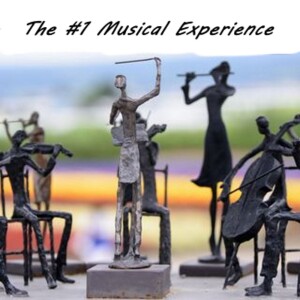
- Podcast Features
-
Monetization
-
Ads Marketplace
Join Ads Marketplace to earn through podcast sponsorships.
-
PodAds
Manage your ads with dynamic ad insertion capability.
-
Apple Podcasts Subscriptions Integration
Monetize with Apple Podcasts Subscriptions via Podbean.
-
Live Streaming
Earn rewards and recurring income from Fan Club membership.
-
Ads Marketplace
- Podbean App
-
Help and Support
-
Help Center
Get the answers and support you need.
-
Podbean Academy
Resources and guides to launch, grow, and monetize podcast.
-
Podbean Blog
Stay updated with the latest podcasting tips and trends.
-
What’s New
Check out our newest and recently released features!
-
Podcasting Smarter
Podcast interviews, best practices, and helpful tips.
-
Help Center
-
Popular Topics
-
How to Start a Podcast
The step-by-step guide to start your own podcast.
-
How to Start a Live Podcast
Create the best live podcast and engage your audience.
-
How to Monetize a Podcast
Tips on making the decision to monetize your podcast.
-
How to Promote Your Podcast
The best ways to get more eyes and ears on your podcast.
-
Podcast Advertising 101
Everything you need to know about podcast advertising.
-
Mobile Podcast Recording Guide
The ultimate guide to recording a podcast on your phone.
-
How to Use Group Recording
Steps to set up and use group recording in the Podbean app.
-
How to Start a Podcast
-
Podcasting
- Podcast Features
-
Monetization
-
Ads Marketplace
Join Ads Marketplace to earn through podcast sponsorships.
-
PodAds
Manage your ads with dynamic ad insertion capability.
-
Apple Podcasts Subscriptions Integration
Monetize with Apple Podcasts Subscriptions via Podbean.
-
Live Streaming
Earn rewards and recurring income from Fan Club membership.
-
Ads Marketplace
- Podbean App
- Advertisers
- Enterprise
- Pricing
-
Resources
-
Help and Support
-
Help Center
Get the answers and support you need.
-
Podbean Academy
Resources and guides to launch, grow, and monetize podcast.
-
Podbean Blog
Stay updated with the latest podcasting tips and trends.
-
What’s New
Check out our newest and recently released features!
-
Podcasting Smarter
Podcast interviews, best practices, and helpful tips.
-
Help Center
-
Popular Topics
-
How to Start a Podcast
The step-by-step guide to start your own podcast.
-
How to Start a Live Podcast
Create the best live podcast and engage your audience.
-
How to Monetize a Podcast
Tips on making the decision to monetize your podcast.
-
How to Promote Your Podcast
The best ways to get more eyes and ears on your podcast.
-
Podcast Advertising 101
Everything you need to know about podcast advertising.
-
Mobile Podcast Recording Guide
The ultimate guide to recording a podcast on your phone.
-
How to Use Group Recording
Steps to set up and use group recording in the Podbean app.
-
How to Start a Podcast
-
Help and Support
- Discover

Mozart - Classical Music to Calm Sleeping Babies
In 1993, psychologist Francis Rauscher created an experiment to test the relevance of listening to music and test-taking. He sat 36 college students in a room and played them 10 minutes of a Mozart Piano Sonata. After doing so, they were told to take a test of spatial reasoning (mentally manipulating objects and imagining them in different locations and positions).
Rauscher then took a group of students and played 10 minutes of silence and 10 minutes of a monotone voice. A spatial reasoning test was given after both recordings to each of the groups.
The results showed that the students scored significantly higher on the tests after listening to Mozart’s Sonata -- opening the floor to hundreds of new experiments.
After the news got out about Rauscher’s experiment, the theory was quickly distorted by the media.
"Generalizing these results to children is one of the first things that went wrong. Somehow or another the myth started exploding that children that listen to classical music from a young age will do better on the SAT, they'll score better on intelligence tests in general, and so forth.” -- Francis Rauscher
A common misconception is that the original experiment proves the effect of classical music on general intelligence, but Rauscher only tested for spatial.
Although Rauscher did not intend her results to apply to early childhood development theories, that did not stop other researches from connecting the dots.
According to the New York Times, playing Mozart does not result in a big gap between children’s spatial testing, but music involvement does.
Dr. Hetland, a cognitive psychologist, conducted 15 studies with 700 preschool and elementary age children that showed this to be true. The children received 15 minute periods of active musical instruction weekly. The control group of children either received arithmetic instruction or no instruction.
The analysis showed a large gap in spatial reasoning scores between the control group and those who had musical instruction, larger than that of the Mozart Effect’s results.
Hosted on Acast. See acast.com/privacy for more information.
More Episodes
 2022-10-14
2022-10-14
 2022-09-08
2022-09-08
 2022-08-15
2022-08-15
 2022-08-01
2022-08-01
 2022-07-14
2022-07-14
 2022-06-09
2022-06-09
 2022-05-28
2022-05-28
 2022-05-26
2022-05-26
 2022-05-24
2022-05-24
 2022-05-20
2022-05-20
Create your
podcast in
minutes
- Full-featured podcast site
- Unlimited storage and bandwidth
- Comprehensive podcast stats
- Distribute to Apple Podcasts, Spotify, and more
- Make money with your podcast
It is Free
- Privacy Policy
- Cookie Policy
- Terms of Use
- Consent Preferences
- Copyright © 2015-2026 Podbean.com




